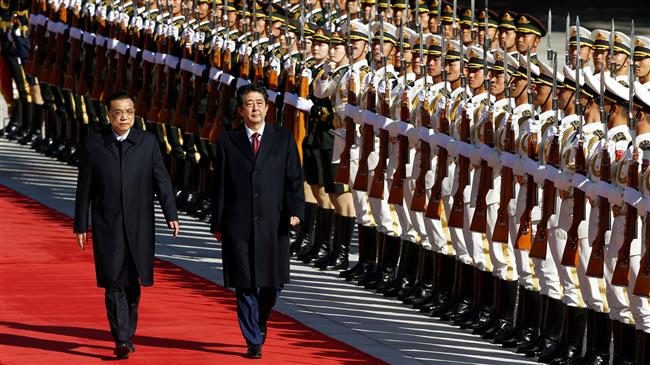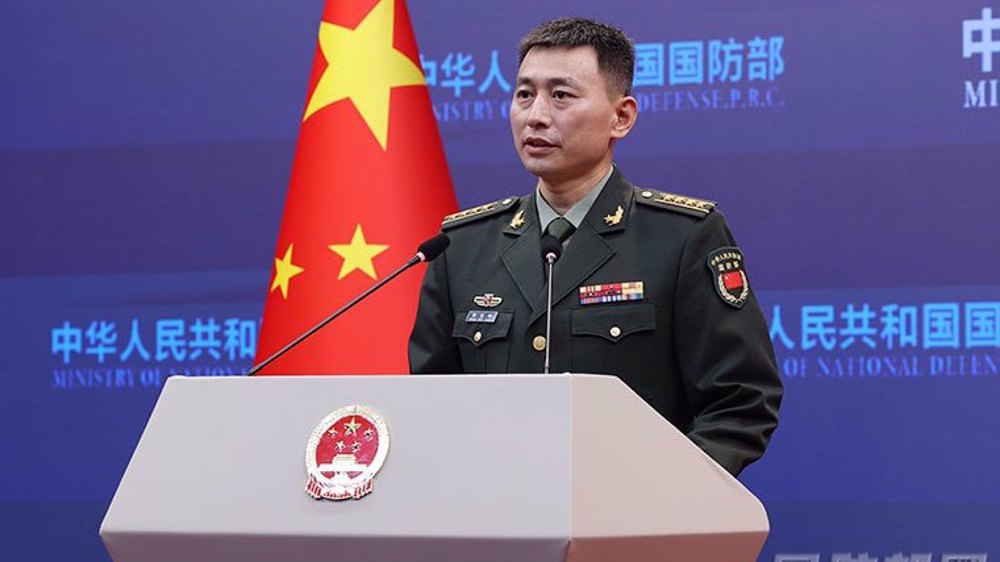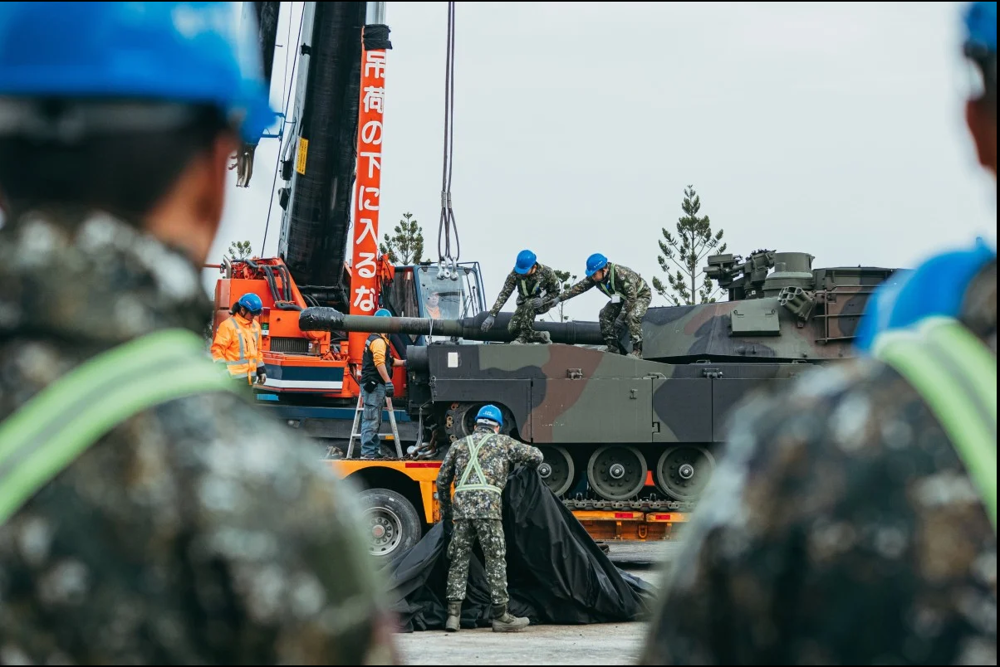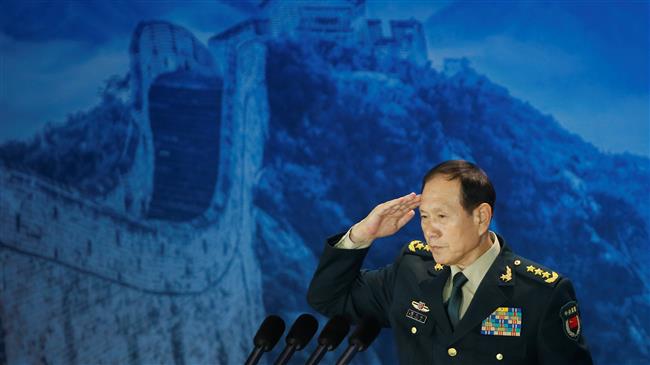Japan, China ties at ‘historic turning point’ as Abe is in Beijing
China has welcomed Japanese Prime Minister Shinzo Abe in a rare trip to the country, where the two regional powers are due to sign a number of deals amid deepening trade dispute with the United States.
Abe was received by his Chinese counterpart Li Keqiang at Tiananmen Square in the capital on Friday, where they inspected an honor guard before going inside the Great Hall of the People across from the Square for talks.
The three-day visit, which is the first by a Japanese premier since December 2011, comes shortly after the 40th anniversary of the Treaty of Peace and Friendship between the world’s second and third economies.
The Japanese premier has brought along delegates from 500 Japanese companies, including giant carmakers like Toyota, who are hoping to see normalized ties with China.
Abe also met with Chinese President Xi Jinping later in the day to discuss a range of potential deals.
The two countries had for several years been locked in a territorial row over a small group of uninhabited islands in the East China Sea, called the Senkaku by the Japanese and the Diaoyu by the Chinese. They are controlled by Japan, but claimed by Beijing.
Ties between the two sides deteriorated after Tokyo nationalized part of the resource-rich islands in 2012.
China maintains that it has indisputable sovereignty over the islands. The Japanese government, instead, regards them as a part of its territory.
Abe and the Chinese president have met many times over the last few years on the sidelines of international events, but neither of them has so far been hosting the other. Abe's trip now sets up the possibility that Xi will also visit Japan next year.
Abe is now visiting China amid concerns that his country – a key US ally — would be the next target of America’s trade war, which has already targeted China, with both Washington and Beijing imposing reciprocal tariffs on each other products.

Trump, who has already complained about a “very high deficit” with Japan, described his good relations with the Japanese leadership but said, “Of course that will end as soon as I tell them how much they have to pay.”
Ties at “historic turning point”
Speaking at a joint briefing with the Chinese premier, Abe said that bilateral relations with China are at an "historic turning point” and that he expects new possibilities in industries such as infrastructure, logistics, healthcare and finance.
“From competition to co-existence, Japan and China bilateral relations have entered a new phase. Hand in hand with Premier Li, I would like to advance our ties forward," Abe said.
He also touched on the issue of relations with North Korea, saying Japan was committed to normalizing diplomatic relations with Pyongyang.
He also said both Japan and China have major responsibility for ensuring regional security and will work together on the North Korea issue.
Li also said in the briefing that he had held “frank” discussions with Abe since his arrival on matters of mutual concerns.
“The Chinese side is willing to work with the Japanese side to return to a normal track, and maintain the stable, sustained and healthy development of bilateral relations," Li said.
Range of agreements singed
Ahead of the Friday briefing, the two sides signed an agreement to prepare yearly plans for talks, dialogues and exchanges, along with a pact to step up cooperation in innovation.
Beijing and Tokyo agreed to boost cooperation in the securities markets including the listing of exchange-trade funds (ETFs), and facilitate smoother customs clearance.

They also inked a currency swap agreement of up to $30.29 billion, effective until 2021. Among the several agreements, they also signed a deal towards establishing a yuan clearing bank.
According to Premier Li, they had agreed that as major countries, China and Japan should uphold free trade and accelerate talks on the Regional Comprehensive Economic Partnership (RCEP).
The RCEP, a 16-nation pact, which involves China, Japan, Australia, India, New Zealand and South Korea, along with ten member of the Association of Southeast Asian Nations (ASEAN), has been under negotiation for years, but a deal has yet to be reached.
Any progress on a deal would depend on cooperation between China and Japan.
Occupation of Syria’s highest peak Mount Hermon part of ‘Greater Israel’ project
Iran: Syrian people will decide their future without foreign interference
IRGC says Iran’s power exceeds borders, warns enemies to adjust themselves
Dozens detained, several wounded in Israeli raids in West Bank
‘Ethnic cleansing’: Hamas blasts Israeli attacks on Gaza hospital amid intl. silence
Saudi delegation meets HTS leader at presidential palace in Damascus
Relentless Israeli ceasefire violations justify need for self-defense: Lebanese MP
Tel Aviv tells Damascus Israeli forces will remain in occupied territory: Report












 This makes it easy to access the Press TV website
This makes it easy to access the Press TV website